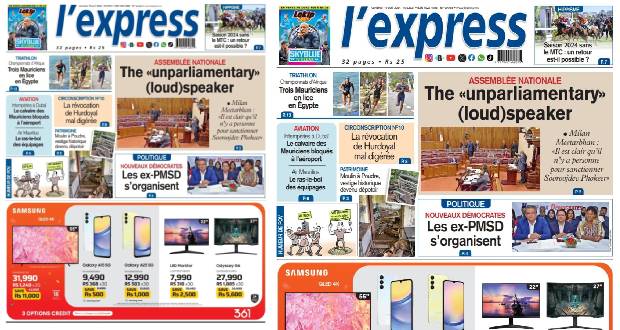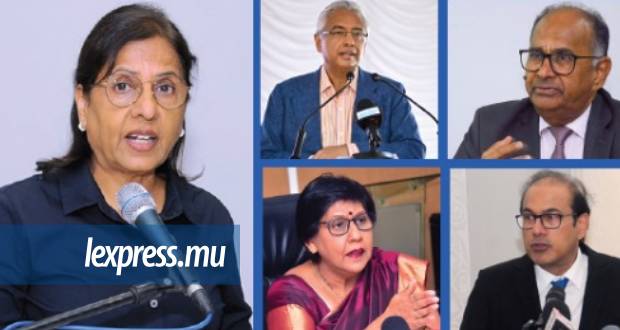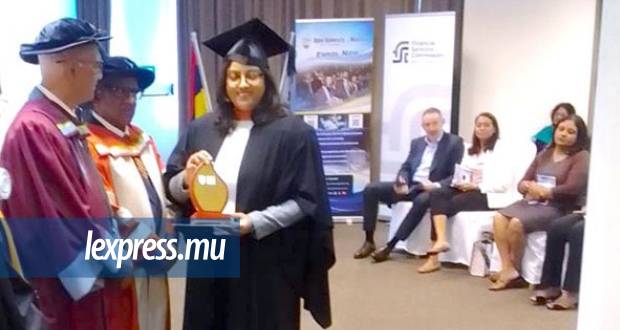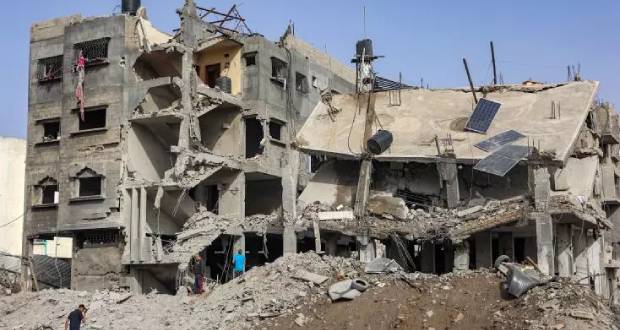Publicité
The 1976-1981 Parliament An insider view
Par
Partager cet article
The 1976-1981 Parliament An insider view


A symbolism of the current political landscape could not be better illustrated than by the presence of the two remaining parliamentarians of the December 1976 general elections in the present Legislature: the Leader of the House and the Leader of the Opposition. Both have marked contemporary politics in their own way over the past half century; historical orthodoxy will establish their place in our political pantheon.
Parliament has always been the quintessence of any democratic system and the people’s choice expressed at regular intervals is entrenched in that institution. In Mauritius at the turn of the last century and until the end of the Second World War, representation was restricted mostly to the propertied class. Political struggle by the founding fathers of the Labour Party resulted in an enlarged enfranchisement for the 1948 and 1953 general elections and universal adult suffrage thereafter.
Forty years ago, next month, the country went to the polls after the far- cical pretext that the general elections of August 1967 were deemed to have taken place in 1971! The MMM’s first participation in the polls resulted in the election of 34 members – a shortfall of two for the overall majority. Its success cut across the country in that it secured equal number of seats from both rural and urban constituencies. Support from the trade union organisations and their members mostly labourers, artisans, bus industry workers, dockers, newly enfranchised youth and a public frustrated by the rigmarole of coalition politics of the incumbents propelled the MMM as the first party in the country. Our organisational inexperience was compensated by the total commitment of our supporters and well-wishers, selflessly providing the logistics and wherewithal of an electoral campaign. Post independent Mauritius needed a new paradigm of its political architecture to respond to the challenges of nation building and the emergence of the MMM captivated the mood of the country.
The Labour Party with its 28 elected members and the eight from the PMSD reconstituted their coalition government thus ignoring the message of the electorate. The first sitting of the first session of the new Parliament would reflect the confrontational nature of the business of the House. The election of the Deputy Speaker and Chairman of Committees was challenged by proposals from the Opposition and the 36-34 split in votes that surfaced then would characterise the weakness of the government throughout the life of that Parliament.
Wavering Majority
The hitherto staid tone of parliamentary debate was replaced by the vigour of combative sparring of the new MMM opposition; the latter used every parliamentary practice and procedure to hold the new government to account. The new members of the Labour Party initially exercised their clout by raising embarrassing parliamentary questions. A splinter group led by Harish Boodhoo and two others joined the fray. It was not long before they morphed into a dissident movement and eventually a political party – PSM. The PMSD had other agendas as usual and could not be relied upon to stall the onslaught of the MMM on many issues.
At the sitting of 29th April 1980, “Estimates of the Supplementary Expenditure” were rejected at the Committee stage when the MMM opposition and the Boodhoo group controlled the majority in the House. The PMSD did not turn up in protest against the appointment of a new Comptroller of Customs. V. Venkatasamy of the MMM chaired the meeting and most items were rejected. That sitting was unique in our Parliament as it illustrated the power of the Legislature over the Executive, a point often missed by government backbenchers. That incident set the stage for the fragility of the government.
A similar case arose in an amendment to the Sugar Industry Insurance Fund Bill. Government side lost on an amendment at Committee stage concerning the compensation to be paid by the Sugar Insurance Fund Board. I proposed that the compensation be raised from Rs 80 to Rs 100 per tonne of canes burnt to finance the replantation scheme. The Minister of Finance was adamant in his refusal and my proposal was carried through when put to the vote.
Peg Question
The bland answers to Parliamentary Questions frustrated the efforts of the MMM in their role of watchdog of public interest. It soon dawned on us that we could introduce some innovation in our parliamentary procedure inspired from the UK House of Commons as provided in our own Standing Orders.
After consultation with the Speaker, sir Harilall Vaghjee, that master of parliamentary tradi- tion, I introduced the “Prime Minister’s Engagement Time Question” at the sitting of Tuesday 7th November 1978. That was an open ended question when the Prime Minister was asked to list his official engagement for the day. The Prime Minister, sir Seewoosagur Ramgoolam, dutifully replied that “in addition to my duties in this House, I attended at 8.30 am a laying of wreath ceremony for Lenin at the Robert Edward Hart Garden in Port Louis. At 9.30 am, I officially opened at La Pirogue Hotel the 12th Commonwealth Broadcasting Conference”. Then a volley of supplementary questions on many issues of government action and policies enlivened the otherwise morose mood of the House. Any supplementary question was allowed since no notice of a specific matter was invoked in the original question.
Questions on “Prime Minister Engagement Time” still get intense media interest and remain an attractive fixture in the UK House of Commons. The performance of the Prime Minister and the Leader of the Opposition is assessed by the political commentariat. Every Wednesday when the House is in session, the Prime Minister is grilled on current policy issues mainly by the Leader of the Opposition and the leaders of other minor parties.
In the 1976-81 Parliament, supplementary questions resulted in rhetorical crossing of swords in full glare of public spotlight. Later amendments to our Standing Orders replaced the “Peg Question” by the more purposeful “Prime Minister’s Question Time” when the Prime Minister answers for half an hour specific questions related to his ministerial responsibilities. Since by convention the Leader of the Opposition does not submit questions like other parliamentarians, he is privileged to raise any matter of urgent and public interest at any sitting of the Assembly by Private Notice except when estimates are considered. The PNQ is disposed as the first item at Question Time.
The nature and relevance of parliamentary questions with the added piquancy from the supplementary parts gained in importance over the years and tempers often flew between the MMM and government side. The parliamentary question system represents a powerful instrument in retrieving information from an obstructive government; the number of questions for the 1976-81 Parliament soared to nearly 5 000 compared to 4 000 in the extended 1967-76 Parliament.
Gladiatorial Exchanges
Parliamentary debates on the Address and the Budget always gave rise to heated exchanges with the government side. Anerood Jugnauth, Paul Bérenger, Kader Bhayat and Jean Claude de l’Estrac, the Opposition frontbench, often leading the assault on major issues countenancing any unwarranted comments from government side with effective rebuttal. The eloquence of sir Harold Walter, taunts from Yousuf Mohamed and powerful ideological outbursts from a pugnacious James Burty David contributed to the cut and thrush of the debates.
Jean Claude de l’Estrac was always scathing in his argumentative riposte but accommodative to other points of view. He was often joined by an equally forceful orator, Finlay Salesse, who set the House alight with glee by his flowery twist in French to formulate his stand and assault his opponents. Bashir Khodabux participated in many discussions emphasising always their ideological contents but with long digression.
Cassam Uteem added a consensual dimension to the social problems of the country specially poverty alleviation but also led frontal attacks on drug abuse then affecting mainly his constituency. He had an empathetic personality drawing respect from both sides of the House. Ramduth Jaddoo lashed with aplomb the arguments of the very able and respected sir Kher Jagatsingh on educational reforms hurriedly assembled for implementing free secondary education.
The sugar sector and the fate of the small sugar cane planters were canvassed by Madan Dulloo, Ramduth Jaddoo and Jugdish Goburdhun through a host of démarches – parliamentary questions, matters raised at adjournment and parliamentary petition signed by thousands of small planters.
The energy issue mostly the importation of petroleum products by a consortium of oil multinationals was challenged in Parliament and sub-sequently STC took over the importation, being one of the first actions of the new 60-0 government. Production of ethanol and use of bagasse in electricity production were regularly debated in the Assembly. Kader Bhayat’s cross examination of sir Harold Walter on foreign policy issues which at times overlapped into anecdotal encounters of the latter with the British army authorities was conducted with great parliamentary decorum.
Paul Bérenger was an impressive debater. He always set the tone on all major issues in Parliament. He was incisive in his analysis, ruthless but with a tinge of humour and sarcasm in his denunciation of abuse, excesses and incompetence, eloquent and perspicuous in his narratives and prompt in highlighting contradictory clauses in draft bills laid before the Assembly. That was vintage MMM.
Motion of Censure
With a cascade of scandals shaking the government, Anerood Jugnauth as Leader of the Opposition tabled a motion of no confidence in the government which was debated on 4th December 1979. In a hard-hitting speech castigating the economic mismanagement that resulted in the first devaluation of the rupee and the removal of subsidies on many essential items imposed by the IMF, government frontbench stoically bore the brunt. Paul Bérenger made a succinct presentation of government ineptitude. His oratory doped with style and guile in denouncing the general failure of the government and its attempts to lure potential defectors from the Opposition side kept the House spellbound.
Harish Boodhoo against all expectations made a very brief statement that his group would support the motion as it reflected the mood of the country. Government narrow survival rested with the defection of Augustave to their side.
Other Issues
Following the torching of Le Mauricien buildings in January 1978, speculation was rife as to the criminal origin of the act. Public opinion was incensed and the MMM rightly raised it in Parliament. We went too far in accusing the State security services under the watch of the Prime Minister to have instigated the fire. The enquiry led by a senior magistrate disculpated the authorities and Anerood Jugnauth on behalf of the Opposition decorously presented his apologies to the Prime Minister.
Change in party loyalty among parliamentarians has blighted the image of our nascent political culture. The process gained notoriety over the years and among the first to cross the floor from the 1976 intake was Moorba, rewarded with a ministerial position whilst the others obtained lesser favours. They always recite the now familiar mantra, i.e difference in opinion not tolerated in the party, leaders staying well past their sell-by date or more bluntly no hope of becoming minister.
Conclusion
This article does not pretend to be exhaustive in both content and analysis. I might have my own bias on certain events. The campaign of Harish Boodhoo against corruption that eventually led to the dismissal of Badry and Daby, the devaluation of the rupee followed by severe austerity measures, the rejection of the first draft of the1980/81 Budget are cases in point. I would request other participants to complement the narrative as that episode represents an important milestone in our parliamentary history.
This is the time to reflect on one’s political career with sir Anerood Jugnauth giving notice of his impending departure. Is it overdue in the light of the famous dictum of Enoch Powell, British scholar and politician, that “all political lives, unless they are cut off in midstream at a happy juncture, end in failure because that is the nature of politics and human affairs”?



Publicité
Les plus récents






